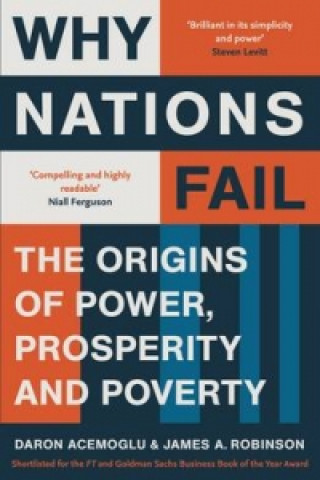
Kod: 01242366
Why Nations Fail
Autor Daron Acemoglu, James A. Robinson
Brilliant and engagingly written, Why Nations Fail answers the question that has stumped the experts for centuries: Why are some nations rich and others poor, divided by wealth and poverty, health and sickness, food and famine? I ... więcej
- Język:
 Angielski
Angielski - Oprawa: Miękka
- Liczba stron: 544
Wydawca: Profile Books, 2013
- Więcej informacji o książce

37.58 zł
Zwykle: 51.08 zł
Oszczędzasz 13.50 zł

Dostępna u dostawcy
Wysyłamy za 2 - 5 dni
Zobacz książki o podobnej tematyce
-

Surrounded by Idiots
36.58 zł -28 % -

The 48 Laws of Power
98.02 zł -14 % -

48 Laws Of Power
60.84 zł -28 % -

Psychology of Money
70.06 zł -23 % -

Normal People
37.58 zł -26 % -

Seven Husbands of Evelyn Hugo
33.97 zł -28 % -

The Art Of Seduction
91.91 zł -10 % -

Intelligent Investor
60.84 zł -28 % -

12 Rules for Life
37.58 zł -26 % -
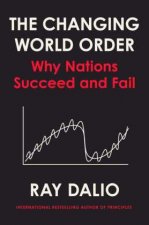
Principles for Dealing with the Changing World Order
92.71 zł -15 % -

The Concise 48 Laws of Power
40.09 zł -21 % -

Why Men Love Bitches
56.53 zł -22 % -

Japanese Knitting Stitch Bible
73.06 zł -5 % -

Zero to One
48.71 zł -28 % -

Why I Am so Clever
15.53 zł -21 % -

The Art of War
13.52 zł -13 % -

History of Central Banking and the Enslavement of Mankind
96.02 zł -16 % -

Principles
120.98 zł -14 % -
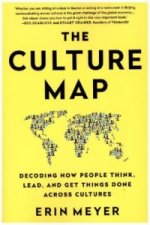
The Culture Map
78.58 zł -14 % -

How the World Really Works
51.61 zł -23 % -

Wealth of Nations
24.45 zł -23 %
Podaruj tę książkę jeszcze dziś
- Zamów książkę i wybierz "Wyślij jako prezent".
- Natychmiast wyślemy Ci bon podarunkowy, który możesz przekazać adresatowi prezentu.
- Książka zostanie wysłana do adresata, a Ty o nic nie musisz się martwić.
Więcej informacji o Why Nations Fail
Za ten zakup dostaniesz 22 punkty
 Opis
Opis
Brilliant and engagingly written, Why Nations Fail answers the question that has stumped the experts for centuries: Why are some nations rich and others poor, divided by wealth and poverty, health and sickness, food and famine?
Is it culture, the weather, geography? Perhaps ignorance of what the right policies are?
Simply, no. None of these factors is either definitive or destiny. Otherwise, how to explain why Botswana has become one of the fastest growing countries in the world, while other African nations, such as Zimbabwe, the Congo, and Sierra Leone, are mired in poverty and violence?
Daron Acemoglu and James Robinson conclusively show that it is man-made political and economic institutions that underlie economic success (or lack of it). Korea, to take just one of their fascinating examples, is a remarkably homogeneous nation, yet the people of North Korea are among the poorest on earth while their brothers and sisters in South Korea are among the richest. The south forged a society that created incentives, rewarded innovation, and allowed everyone to participate in economic opportunities.
The economic success thus spurred was sustained because the government became accountable and responsive to citizens and the great mass of people. Sadly, the people of the north have endured decades of famine, political repression, and very different economic institutions—with no end in sight. The differences between the Koreas is due to the politics that created these completely different institutional trajectories.
Based on fifteen years of original research Acemoglu and Robinson marshall extraordinary historical evidence from the Roman Empire, the Mayan city-states, medieval Venice, the Soviet Union, Latin America, England, Europe, the United States, and Africa to build a new theory of political economy with great relevance for the big questions of today, including:
- China has built an authoritarian growth machine. Will it continue to grow at such high speed and overwhelm the West?
- Are America’s best days behind it? Are we moving from a virtuous circle in which efforts by elites to aggrandize power are resisted to a vicious one that enriches and empowers a small minority?
- What is the most effective way to help move billions of people from the rut of poverty to prosperity? More philanthropy from the wealthy nations of the West? Or learning the hard-won lessons of Acemoglu and Robinson’s breakthrough ideas on the interplay between inclusive political and economic institutions?
Why Nations Fail will change the way you look at—and understand—the world.
 Szczegóły książki
Szczegóły książki
Kategoria Książki po angielsku Economics, finance, business & management Economics
37.58 zł
- Pełny tytuł: Why Nations Fail
- Podtytuł: The Origins of Power, Prosperity and Poverty
- Autor: Daron Acemoglu, James A. Robinson
- Język:
 Angielski
Angielski - Oprawa: Miękka
- Liczba stron: 544
- EAN: 9781846684302
- ISBN: 1846684307
- ID: 01242366
- Wydawca: Profile Books
- Waga: 458 g
- Wymiary: 195 × 128 × 34 mm
- Data wydania: 07. February 2013
Ulubione w innej kategorii
-

Team Topologies
92.71 zł -23 % -

Freakonomics
36.38 zł -14 % -

Misbehaving - The Making of Behavioral Economics
48.31 zł -5 % -

Indispensable Milton Friedman
103.14 zł -23 % -

Little Book of Economics
47.10 zł -23 % -

Pyramid Principle, The
188.74 zł -4 % -

Essential Mathematics for Economic Analysis
314.34 zł -7 % -
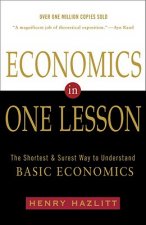
Economics In One Lesson
70.06 zł -23 % -

Predictably Irrational
67.95 zł -15 % -

Price of Inequality
48.31 zł -5 % -

(Mis)Behaviour of Markets
60.84 zł -23 % -

Debt, 10th Anniversary Edition
120.08 zł -23 % -

A-Level Economics: Year 1 & 2 Complete Revision & Practice (with Online Edition)
119.37 zł -10 % -

The Invisible Hand
33.47 zł -23 % -

Liar's Poker
60.64 zł -

Irrational Exuberance
89.20 zł -4 % -

Art of Statistics
52.11 zł -15 % -

Scrum - A Pocket Guide - 3rd edition
96.02 zł -5 % -

Hypomanic Edge
101.33 zł -

How I Made One Million Dollars Last Year Trading Commodities
204.68 zł -4 % -

Misbehavior of Markets
116.67 zł -

Econometric Analysis, Global Edition
390.32 zł -

Cartoon Introduction to Economics
88.60 zł -11 % -

Economics: The User's Guide
60.94 zł -15 % -

Rise of Carry: The Dangerous Consequences of Volatility Suppression and the New Financial Order of Decaying Growth and Recurring Crisis
115.67 zł -23 % -

Myth of Capitalism - Monopolies and the Death of Competition
101.83 zł -23 % -

How Rich Countries Got Rich and Why Poor Countries Stay Poor
70.06 zł -23 % -

Business Etiquette in Brief
63.04 zł -4 % -

Intermediate Microeconomics and Its Application
446.86 zł -

Discovery, Capitalism & Distributive Justice
94.31 zł -

Are the Rich Necessary?
42.49 zł -23 % -

Economic Point of View
108.45 zł -10 % -

Driving Digital Transformation
92.71 zł -23 % -

Economic Facts and Fallacies
85.19 zł -5 % -

Decision Book
84.59 zł -6 % -
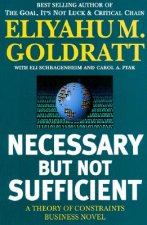
Necessary but Not Sufficient
85.09 zł -4 % -

Freakonomics
28.86 zł -23 % -

Economics Book
90.91 zł -14 % -

Leading at a Higher Level
129.60 zł -5 % -

Principles of Economics
76.17 zł -1 % -

Macroeconomics For Dummies
107.15 zł -11 % -

45 Second Presentation That Will Change Your Life
49.41 zł -4 % -

Economics of the Public Sector
310.93 zł -5 % -

Factfulness
51.91 zł -10 % -

Currency Wars
69.86 zł -14 % -

Think Like a Freak
36.38 zł -14 % -

Breakthrough Copywriter
83.69 zł -

Economics 101
60.84 zł -23 % -

Great Economists
52.11 zł -15 %
zadowolonych klientów
Od roku 2008 obsłużyliśmy wielu miłośników książek, ale dla nas każdy był tym wyjątkowym.
Copyright! ©2008-24 libristo.pl Wszelkie prawa zastrzeżonePrywatnieCookies


 21 milionów książek
21 milionów książek Dostawa 10.99 zł
Dostawa 10.99 zł (32) 444 93 66 (8-15.30h)
(32) 444 93 66 (8-15.30h)